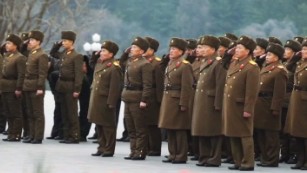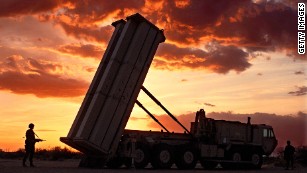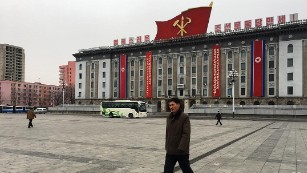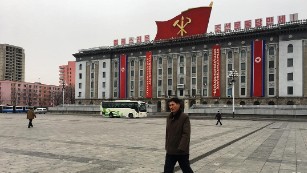North Korean economist: Sanctions aren't slowing us down
Neither the change in leadership in the United States, nor sanctions imposed by the UN Security Council, will impede North Korea's economic and military advancement, according to an economist from the reclusive nation.
Ri Gi Song, a researcher of the Institute of Economics at the Academy of Social Sciences, told CNN that sanctions weren't having an adverse impact on the country's military program.
"No, the sanctions are not slowing down our nuclear and missile development," he said. "Rather we are going faster, we are increasing further the capability of our national defense with nuclear part as its main core."
Inside North Korea, the world's most reclusive country
The latest round of sanctions were imposed in November by the UN Security Council following the country's fifth nuclear test. North Korea test-fired a new ballistic missile on Sunday, the first since US President Donald Trump took office in late January.
The launch was condemned by Japanese Prime Minister Shinzo Abe as "absolutely intolerable" during a press conference with Trump, and prompted responses from South Korea, China and Russia.
'We will never stop'
Speaking exclusively to CNN in Pyongyang, Ri said that the government would "continue to strengthen our nuclear capability as along as the United States continues its hostile policy against the DPRK," referring to the Democratic People's Republic of Korea.

North Korea marks late leader's birth
"So we will never stop, we will never slow down. Even we will try to go faster."
Trump hasn't made it clear what his policy on North Korea will be. He said in a press conference Thursday, "We'll take care of it folks; we're going to take care of it all."
Experts on North Korea said analysis suggested the sanctions are having an effect.
"They're working and they have slowed the nuclear program, they have slowed the ballistic missile program," said senior analyst Joseph Bermudez of North Korea monitoring group 38 North.
"If (sanctions) hadn't been in place, we would have seen both programs at a more advanced stage than they are today."
Missile launch a 'gift' to honor Kim Jong Il
Economic development
Ri said restrictions on the North's ability to sell raw materials, including coal, hadn't impeded the country's economic growth.

N. Koreans praise missile test despite sanctions
"The basic principle in terms of exporting raw materials from DPRK is simply we don't promote the export of raw materials including coal," he said.
"As a result of that particular principle... we don't feel very much affected by the so-called restrictions in the export of coal."
He said the country is earning money from tech exports to Southeast Asia -- including precision computer numerical control (CNC) systems -- and processed raw materials like magnesite, graphite, and zinc products.
How US could stop a North Korean missile
Still at odds with US
In his interview with CNN, Ri issued a thinly veiled warning to the United States and its regional allies seeking to crack down on North Korea.
"They have to take... into good consideration, the fact that the DPRK has now become a full-fledged nuclear power, a military power in the East."
Asked about the new Trump administration, Ri said while the United States maintains a "continuous hostile policy," it doesn't matter which President is in the White House.

What is THAAD?
"The new administration tries to maintain the status quo in terms of the Americans trying to dominate the geopolitical situation, especially in the Asia-Pacific region," he said through a translator provided by the government.
"Our advice would be for the new administration to be very considerate, to be very careful when they try to adopt new DPRK policy."
Ri also hit out at Defense Secretary James Mattis' recent visit to South Korea to discuss the THAAD missile defense system, which is being deployed to potentially intercept North Korean missiles.
News COurtesy: www.cnn.com












